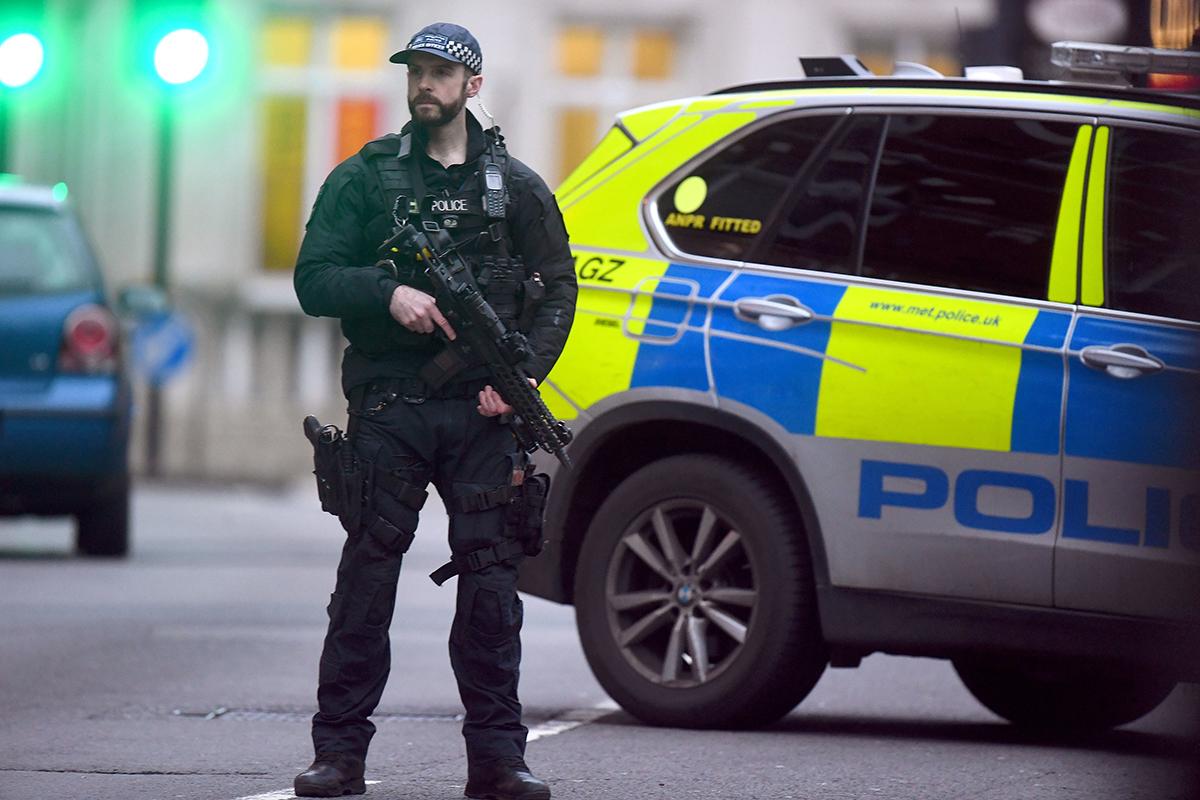Streatham terror attacker was being monitored by undercover officers at time of stabbings, police confirm
Undercover officers were following Sudesh Amman as part of 'proactive counterterrorism operation', Scotland Yard says
The terrorist who launched a stabbing attack on a London high street was being monitored by undercover police and had been released from prison just days ago.
Sudesh Amman, a 20-year-old Isis supporter, was jailed for terror offences in December 2018 after encouraging his girlfriend to behead her parents and declaring his own wish to carry out an attack.
The Metropolitan Police said he was being followed as part of a “proactive counterterrorism operation” when he started the rampage in Streatham.
Amman was able to stab two people before being shot dead by armed officers outside a busy row of shops.
Deputy Assistant Commissioner Lucy D’Orsi said Amman was wearing a fake suicide vest.
"Armed officers, who were part of a proactive counter-terrorism surveillance operation and were following the suspect on foot, were in immediate attendance and shot a male suspect dead at the scene," she added.
"The suspect had been recently released from prison, where he had been serving a sentence for Islamist-related terrorism offences."
Amman died at the scene, where he could be seen lying face down on the ground wearing the fake suicide vest, with a knife next to his body.
A man in his 40s, was initially in a life-threatening condition but is now stable. A woman in her 50s who was also stabbed has been discharged from hospital.
Another woman, in her 20s, remained in hospital being treated for injuries caused by flying glass when police opened fire.
Members of the public described the man shouting “Allahu akbar” during the attack, which happened in front of numerous shoppers and passers-by on Sunday afternoon.
Ms d'Orsi thanked members of the public who helped officers and paramedics in the aftermath of what she called a “very confusing and alarming incident”.
She added: "We are confident that this is an isolated incident that has been contained. Officers from our Counter Terrorism Command are investigating at pace. We are also liaising and co-operating with the Independent Office of Police Conduct as they conduct their necessary inquiries."
A 28-year-old man who saw it unfold told The Independent he saw two men running down the road and heard a shout of “stop, police”.
“A couple of seconds later I heard a gunshot then three more,” he added. “Everyone on the street turned and ran.”

The Streatham stabbing is the third terror attack to hit UK since security services lowered the national threat level from severe to substantial in November, meaning attacks were deemed “likely” rather than “highly likely”.
The first was the stabbing that left two dead at Fishmongers' Hall on 29 November, and the second by inmates at HMP Whitemoor last month.
In all three attacks the perpetrators were Islamist extremists armed with blades, and wearing fake suicide vests.
They all involved known extremists subject to various levels of monitoring, including two other men previously convicted of terror offences.
Whitehall sources said Amman had been released from prison days before the attack after serving half of his sentence for collecting and distributing terrorist material.
“There had been concerns when he was in prison,” a source said. “There was nothing that could be done to keep him behind bars under existing laws, hence why he was under surveillance and strict licence conditions.”
Boris Johnson has been pushing for changes to keep terror offenders in prison for longer, and Priti Patel, the home secretary, said the government would be announcing new plans on Monday.
Amman was handed a three year and four month sentence in December 2018 for disseminating terrorist material and collecting information useful for terror attacks after police found a stash of bomb-making manuals and other propaganda.
Then 18, he had declared his own wish to carry out a terror attack and had stockpiled a combat knife, air gun and black flag at his family home in London.
At the top of a list of Amman's “life goals” was dying a martyr and going to Jannah - the afterlife.
In online chats, Amman told his girlfriend and a friend of his hatred for “kuffars” (non-believers), his allegiance to Isis and his wish to carry out a terror attack.

In one message he even encouraged his girlfriend to behead her own “kuffar parents”, and posted al-Qaeda propaganda to a family WhatsApp group including children as young as 11.
Prosecutors said he had a “fascination with conducting an attack focused on using a knife”.
Amman was released after serving half of his jail sentence, after a total of 20 months in prison since his arrest in May 2018.
The Metropolitan Police will be forced to answer questions on how Amman was able to launch an attack in front of the officers tasked with following him.
Detectives investigating the stabbings were searching two houses in south London and Bishop Stortford, Hertfordshire, on Sunday night. No arrests had been made.
Low-technology attacks involving knives and cars have been encouraged by Isis as a means of sowing terror worldwide.
In 2014 a speech by the group’s spokesperson called for indiscriminate attacks on all non-Muslims, particularly in countries including Britain that were bombing the group’s territories in Syria and Iraq.
Isis propaganda called for supporters to attack soft targets, such as shopping districts, with low security. Such attacks have been difficult for security services to intercept, because of the speed of planning and use of everyday items like kitchen knives.
British security services have foiled 24 attack plots – 16 Islamist and eight far-right – since March 2017.
But the effectiveness of MI5's threat assessments has been questioned, as have the quality of probation monitoring and deradicalisation programmes.
In November, the head of UK counterterror police said his officers were running 800 live investigations.
Assistant Commissioner Neil Basu added: “It’s not the volume of the threat, it’s the unpredictability and the lack of intelligence that creates the real pressure.
“Targets are softer, methodology simple and cheap and the perpetrators are either lone actors or more proficient in encryption. The attacks and the planning may be less frequent but they are harder to see and stop.”

